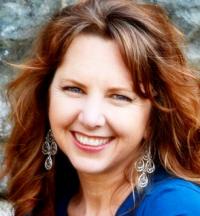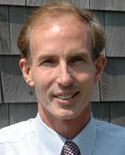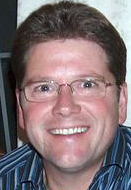Welcome to another episode of “10 Words or Less,” in which I ask brief questions of interesting people and ask brief answers in return. I met today’s guest when I attended her session at a green expo years ago, and she's come into my view often enough that I knew we should talk, so here we are. She’s an author, an advocate for personal eco-consciousness and action, and recognized speaker. Remember, “10 Words” is an ethic, not a limit, so to those of you at home, please, no counting. If you think it’s so easy, let’s see you do it, especially on the fly.
[This is an edited version of this interview, conducted on video March 10.]
 Name Kristi Marsh
Name Kristi Marsh
Born when, where Portland, Oregon, in 1970. Soon after, I moved to California, where I was raised in Sacramento. Spent some time back up in the state of Washington, and then I've spent the last 20 years here south of Boston.
Family circumstance "I am raising a family. From 2 to midnight, I’m a stay-at-home mom, raising three teenagers. My husband is in retail."
Occupation "I’m an educator of mainstream women who are curious and want to learn more about this whole movement about how the products we bring into our homes can have an impact on our health."
What did you want to be when you grew up? "A Rockette. That didn’t work out. An animal trainer at an amusement park. That didn’t work out. By the time I was a teen, I realized I had a connection toward training. In college I studied human resources, and went into the world of retail as a trainer at Target and a beauty-industry store in malls. That’s where I found this connection to be working with women and bringing them along in a process.
An early influence outside your immediate family The outdoors. From camping, to being raised as a preteen having a horse as my sense of independence."
A hero today, also outside your immediate family "I spent most of my life knowing the name Rachel Carson, but it wasn’t until my late 30s that I learned more about who Rachel Carson was, as an author, as a scientist, as an advocate for women. I read ‘Silent Spring' and I know that it is an impactful book on my generation, but being raised in my generation, I had no idea what it was about. Once I read it and learned more about Rachel Carson’s legacy, i think it influences me greatly. I have deep admiration and respect for the change she created, not only in the 1960s, but the ripples it created throughout the 1970s."
What’s your book called, and how can people get it? “'Little Changes, Tales of a Reluctant Home Ecomomics Pioneer.' It is a paperback on any normal online paperback site. It’s also an e-book. And it can also be purchased directly through choosewiser.com."
 Authors Al Lewis (left), Andre Spicer, and Carl Cederstrom have been getting lots of mileage tearing down the notion of corporate wellness. Having not heard enough in reply to balance their broadsides, I’m writing one.
Authors Al Lewis (left), Andre Spicer, and Carl Cederstrom have been getting lots of mileage tearing down the notion of corporate wellness. Having not heard enough in reply to balance their broadsides, I’m writing one.
 Name Kristi Marsh
Name Kristi Marsh Name
Name